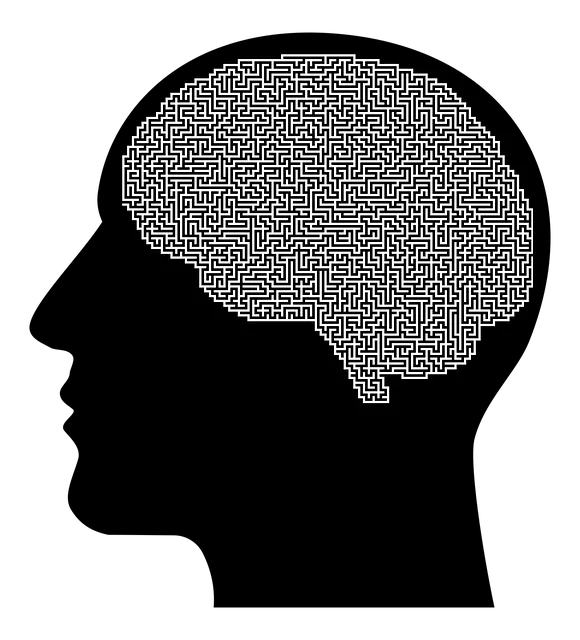The Colorado Springs Kaiser Permanente mental health facility employs a comprehensive strategy to recognize and prevent depression, focusing on both mental and physical well-being. Through holistic services like Inner Strength Development, Trauma Support, and Crisis Intervention, they address symptoms like persistent sadness and loss of interest. Prevention methods emphasize building resiliency with mindfulness meditation, compassion cultivation, and communication skills. Social connections are crucial, fostered through group therapy and community activities that encourage open conversations about mental health. Lifestyle interventions such as physical activity, nutrition, and sleep hygiene are also integral to their approach, promoting long-term well-being by integrating these practices into daily routines.
Depression is a prevalent and serious mental health concern, but proactive strategies can help prevent its onset. This article explores various evidence-based approaches to safeguard your mental well-being, drawing insights from the expertise of the Colorado Springs Kaiser Permanente Mental Health Facility. We delve into understanding depression’s signs, building resilience through stress management and coping techniques, harnessing the power of social connections, and adopting lifestyle interventions like physical activity, nutrition, and sleep hygiene.
- Understanding Depression: Recognizing Signs and Symptoms at the Colorado Springs Kaiser Permanente Mental Health Facility
- Building Resiliency: Coping Strategies and Stress Management Techniques for Prevention
- Social Connections and Support: The Role of Community and Peer Networks in Depression Prevention
- Lifestyle Interventions: Physical Activity, Nutrition, and Sleep Hygiene as Proactive Measures Against Depression
Understanding Depression: Recognizing Signs and Symptoms at the Colorado Springs Kaiser Permanente Mental Health Facility

At the Colorado Springs Kaiser Permanente Mental Health Facility, understanding depression involves recognizing its subtle signs and symptoms. Depression isn’t just a fleeting bad mood; it’s a complex mental health condition characterized by persistent feelings of sadness, hopelessness, and loss of interest in activities once enjoyed. Professionals here observe changes in appetite, sleep patterns, energy levels, and concentration as red flags. An individual may exhibit social withdrawal, feelings of worthlessness or guilt, and recurrent thoughts of death or suicide—all indicators that require prompt attention.
The facility offers comprehensive services tailored to address these concerns, focusing on both the mind and body. Strategies such as Inner Strength Development help individuals cultivate resilience and coping mechanisms. Trauma Support Services are also available to help process and overcome past traumatic events that may contribute to depression. Crisis Intervention Guidance provides immediate support during acute episodes, ensuring a safe and effective path towards recovery.
Building Resiliency: Coping Strategies and Stress Management Techniques for Prevention

Depression prevention strategies focus on building resiliency, or mental toughness, to better cope with life’s challenges.
At Colorado Springs Kaiser Permanente mental health facility, professionals emphasize the importance of coping strategies and stress management techniques in preventing depressive episodes. This can include practices like mindfulness meditation, which teaches individuals to be present and non-judgmental, thereby reducing reactivity to stressful situations. Compassion cultivation practices encourage self-compassion and empathy towards oneself and others, fostering a sense of connection and support. Effective communication strategies also play a vital role, helping people express their feelings and needs in healthy ways, and build strong relationships that can serve as a reliable support system during difficult times.
Social Connections and Support: The Role of Community and Peer Networks in Depression Prevention

Social Connections and Support play a pivotal role in Depression Prevention, especially at a mental health facility like Colorado Springs Kaiser Permanente. Building and maintaining strong community ties and peer networks can significantly enhance an individual’s resilience against depressive episodes. The sense of belonging and social support provided by these connections offer a buffer against stress and promote better Mood Management. At the Kaiser Permanente facility, programs focused on fostering community among patients can include group therapy sessions, support groups, or social activities that encourage interaction and friendship formation.
Mental Health Awareness is crucial in recognizing when a peer might be struggling. Encouraging open conversations about mental health within these networks enables early identification of depressive symptoms, allowing for timely interventions. The supportive environment cultivated through community engagement at the Kaiser Permanente facility can empower individuals to seek help, initiate conversations about Depression Prevention strategies, and develop coping mechanisms that support long-term mental well-being.
Lifestyle Interventions: Physical Activity, Nutrition, and Sleep Hygiene as Proactive Measures Against Depression

At Colorado Springs Kaiser Permanente mental health facility, proactive measures against depression involve lifestyle interventions such as physical activity, nutrition, and sleep hygiene. Regular exercise has been shown to boost mood by increasing brain chemicals that affect emotion and behavior, while improving self-esteem and hopefulness. A structured self-care routine development for better mental health can integrate these activities into daily life, making them accessible habits rather than isolated practices.
Nutrition plays a significant role in mental well-being as certain foods contain nutrients essential for brain function. Adequate sleep hygiene, maintaining consistent sleep patterns, also supports emotional regulation and cognitive functioning. In addition to these individual strategies, social skills training and community outreach program implementation can foster connections and provide support networks, which are crucial for preventing isolation—a common factor in depression.
Depression prevention is a holistic approach that involves understanding symptoms, building resilience, fostering social connections, and adopting healthy lifestyles. The strategies discussed at the Colorado Springs Kaiser Permanente Mental Health Facility emphasize proactive measures such as stress management, community engagement, physical activity, balanced nutrition, and quality sleep—all essential components for maintaining mental well-being. By integrating these techniques into daily routines, individuals can navigate life’s challenges with enhanced resilience and reduce the risk of depression.






